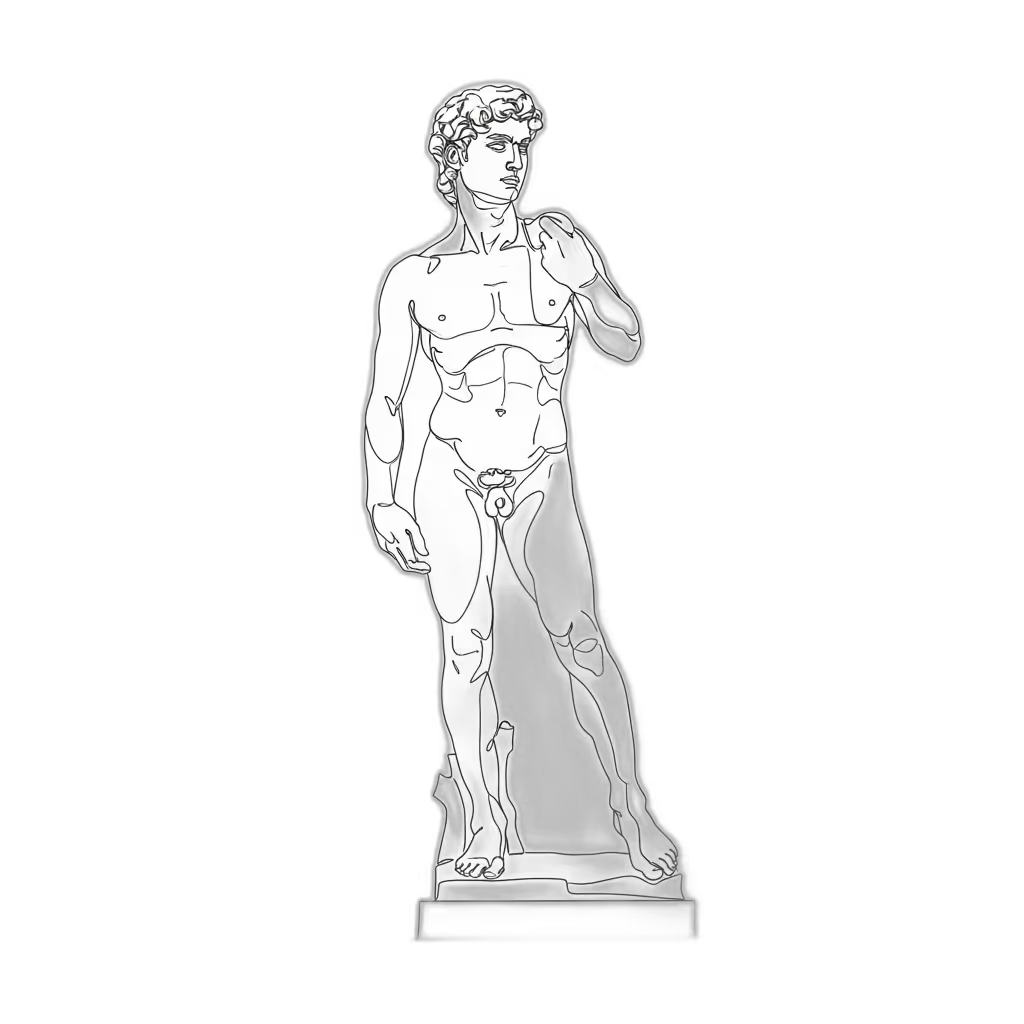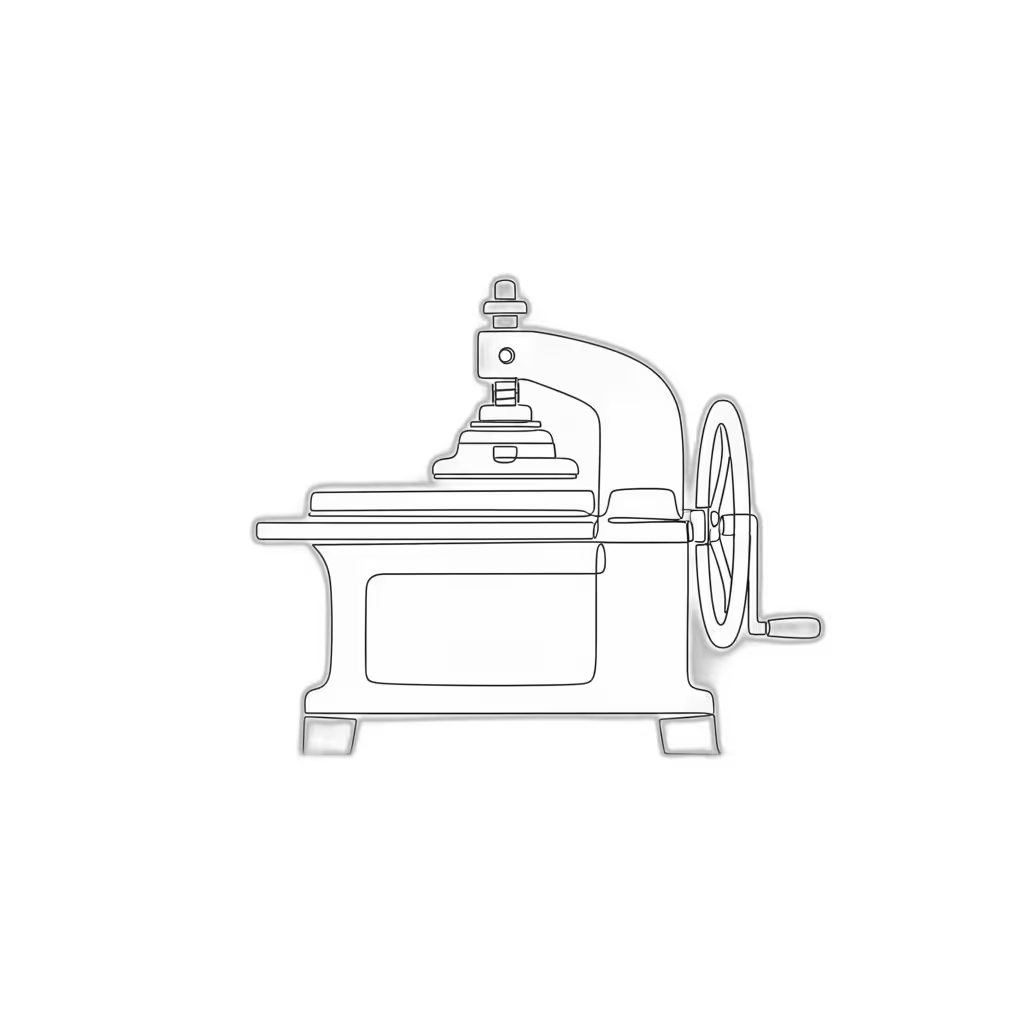IRS Form 8283 serves as a critical document for taxpayers who make substantial non-cash charitable donations. This specialized tax form enables individuals and organizations to accurately report property contributions to charitable organizations, ensuring proper documentation of charitable giving and potential tax deductions. The form becomes particularly important when donations exceed $500, requiring detailed information about the donated property, its fair market value, and the receiving charitable organization. By providing a structured method for reporting charitable contributions, Form 8283 helps taxpayers maintain transparency with the Internal Revenue Service while supporting their ability to claim appropriate tax deductions for philanthropic efforts.
Navigating the complexities of charitable donations requires a clear understanding of IRS documentation and valuation requirements. When donating non-cash items valued over $500, taxpayers must provide a comprehensive and accurate assessment of the property's value through IRS Form 8283. A professional appraisal becomes critical in this process, serving multiple essential functions beyond simple documentation.
An independent appraisal provides an objective, credible valuation that meets strict IRS guidelines. This detailed assessment examines the item's condition, market comparables, and intrinsic characteristics to determine its fair market value. By obtaining a professional evaluation, donors create a robust defense against potential audit scrutiny and ensure they're accurately representing their charitable contributions.
The appraisal serves multiple critical purposes. It helps taxpayers comply with IRS regulations, prevents potential penalties from misreporting, and provides transparency for both donors and receiving charitable organizations. Different types of property—whether artwork, vehicles, real estate, or other significant assets—often require specialized valuation approaches that a qualified appraiser can expertly navigate.
Beyond regulatory compliance, a well-documented appraisal supports the broader mission of charitable giving. It allows non-profit organizations to accurately record and understand the true value of in-kind donations, enhancing their financial reporting and demonstrating the tangible impact of charitable contributions.
Most importantly, a professional appraisal protects the donor's interests. It provides a credible, independent assessment that can withstand potential IRS review, giving taxpayers confidence in their charitable deduction claims. By investing in a thorough, professional valuation, donors can ensure their generosity is both recognized and properly documented.
An artwork appraisal represents a comprehensive professional evaluation that precisely determines the monetary and historical value of an art piece. This meticulous process involves expert assessment of multiple intricate factors that collectively influence an artwork's market worth and significance.
Professional art appraisers employ a sophisticated methodology that examines critical elements such as the artwork's provenance, authenticity, physical condition, current market dynamics, and the artist's reputation. Each of these components plays a crucial role in establishing an accurate and defensible valuation.
The evaluation goes far beyond a simple price assessment. Appraisers conduct detailed investigations that may include forensic analysis of materials, historical research into the artwork's origins, and careful examination of minute details that can substantiate or challenge the piece's perceived value. They leverage extensive knowledge of artistic styles, market trends, and collector interests to provide a nuanced understanding of an artwork's worth.
Different stakeholders rely on artwork appraisals for diverse purposes, including insurance documentation, estate planning, potential sale transactions, and tax compliance. The appraisal serves as an authoritative document that provides clarity and confidence for collectors, institutions, and potential buyers.
The complexity of art valuation requires a sophisticated approach that balances objective analysis with deep understanding of artistic and market contexts. A comprehensive appraisal not only quantifies monetary value but also captures the intrinsic cultural and historical significance of the artwork.
Online artwork appraisals have become increasingly sophisticated, offering art owners a convenient and comprehensive method to determine the value of their pieces. The process typically begins with submitting high-resolution photographs that capture essential details of the artwork. Professional appraisers carefully analyze these images, examining critical aspects such as condition, artistic technique, and distinctive characteristics.
Beyond visual documentation, appraisers collect contextual information through digital communication channels. Owners provide supplemental details about the artwork's provenance, artist background, and historical significance, which help create a more nuanced valuation. This collaborative approach allows for a thorough assessment without the constraints of physical proximity.
Live video consultations have emerged as an innovative component of online art appraisals. Using platforms like Zoom or Google Meet, appraisers can engage directly with clients, rotating artwork, examining specific details, and conducting real-time discussions. This interactive method bridges the gap between digital and in-person assessment, enabling a more dynamic and comprehensive evaluation.
The digital appraisal process offers substantial benefits, including accessibility for individuals in remote locations, flexibility for busy clients, and reduced logistical complexities. Professional appraisers maintain rigorous standards, ensuring that online evaluations are as meticulous and credible as traditional in-person assessments.
Modern technology has transformed artwork appraisals, creating a streamlined, efficient approach that meets the evolving needs of art collectors and owners. By leveraging digital tools and professional expertise, online appraisals provide accurate, comprehensive valuations with unprecedented convenience.
Artwork appraisers are specialized professionals who meticulously assess the value of diverse art forms. Their expertise spans multiple domains, each requiring unique skills and deep knowledge of artistic markets, historical context, and aesthetic evaluation.
Fine art appraisers concentrate on traditional art mediums like paintings, sculptures, and drawings. These experts possess comprehensive understanding of art movements and market dynamics, often developing profound specialization in specific periods such as Impressionism or Contemporary art.
Decorative art appraisers evaluate functional artistic items including furniture, ceramics, glassware, and textiles. Their assessments consider craftsmanship, material quality, historical significance, and provenance, making them invaluable to collectors and antique dealers seeking precise valuations.
Digital art appraisers represent an emerging professional category addressing the rapidly evolving technological art landscape. They specialize in evaluating digital creations, graphic designs, digital paintings, and emerging formats like NFTs, reflecting the dynamic nature of contemporary artistic expression.
Antique appraisers focus on artworks exceeding 100 years in age, conducting thorough examinations that extend beyond aesthetic value. They scrutinize historical importance, authenticity, and originality, distinguishing genuine historical pieces from reproductions and potential forgeries.
Specialty appraisers develop expertise in distinct artistic niches, concentrating on specific artists, regional styles, or unique media such as photography or limited edition prints. Their targeted knowledge enables nuanced, precise valuations within specialized artistic domains.
Institutional appraisers employed by museums, galleries, and cultural organizations perform critical valuation services for collections, exhibitions, and acquisitions. Operating under rigorous ethical standards, they provide essential assessments for insurance, donation, estate planning, and cultural preservation purposes.
Artworks transcend mere visual appeal, representing significant financial and emotional investments. Professional appraisals provide critical insights that extend far beyond simple price determination, serving multiple strategic purposes for art owners.
Insurance protection stands as a primary motivation for artwork appraisals. Without accurate documentation, collectors risk inadequate compensation during loss, theft, or damage scenarios. Precise valuations enable insurance companies to establish appropriate coverage, ensuring financial security for valuable pieces.
Estate planning represents another crucial context for art appraisals. When transferring assets between generations, comprehensive valuations help establish fair market values, potentially mitigating potential tax complications and familial disputes. Executors and heirs gain clarity about the financial landscape of inherited artwork collections.
Charitable donations also benefit from professional appraisals. For artwork valued over specific thresholds, formal assessments become essential for claiming tax deductions. These documentations provide nonprofits with transparent understanding of donated asset values while offering potential tax advantages to donors.
Preparing for potential sales requires nuanced market understanding. Appraisals illuminate current market trends, helping owners set competitive pricing strategies. Whether considering auction placement or private sale, comprehensive evaluations empower informed decision-making.
Investment portfolios increasingly recognize art as a valuable asset class. Professional appraisals help collectors assess artwork's financial potential, tracking appreciation and understanding long-term value trajectories. These insights support sophisticated wealth management approaches.
Authenticity verification represents an often-overlooked yet critical appraisal benefit. Reputable assessments not only determine monetary value but also confirm artwork provenance, protecting collectors from potential fraud and enhancing piece legitimacy.
Ultimately, artwork appraisals represent more than financial transactions—they are comprehensive explorations of cultural, historical, and monetary significance. By bridging emotional attachment and strategic financial planning, professional evaluations offer collectors comprehensive perspectives on their artistic investments.
Navigating IRS Form 8283: What You Need to Know
When claiming deductions for charitable art donations, IRS Form 8283 is a critical document for tax compliance and valuation. Understanding its nuances can help you maximize deductions while staying within IRS guidelines.
Key Components of Form 8283
- Required for artwork donations valued over $5,000
- Mandates a comprehensive, professional appraisal
- Serves as official documentation for charitable contributions
Appraisal Requirements
Qualified Appraiser Criteria
- Must be credentialed in the specific art category
- Evaluates artwork based on:
- Current market trends
- Comparable sales data
- Artwork condition
- Provides a signed, detailed written report
Form 8283 Section Breakdown
Section One: Donor Information
This section requires comprehensive details about the artwork, including:
- Complete artist name
- Artwork title
- Precise provenance information
- Fair market value
- Donation date
Section Two: Appraiser Declaration
The appraiser must:
- Confirm appraisal accuracy
- Declare independence from the donor
- Provide professional credentials
Critical Compliance Considerations
Meticulous documentation is essential. Potential risks of improper filing include:
- Potential IRS audit
- Possible financial penalties
- Disallowed tax deductions
Best Practices
- Retain copies of the appraisal report
- Keep donation receipts
- Verify all information for accuracy
- Consult with a tax professional if uncertain
By understanding and carefully completing Form 8283, you can successfully navigate the charitable art donation process while maintaining full tax compliance.
Why Art Donations Can Significantly Impact Your Tax Strategy
Art donations represent a sophisticated approach to tax planning, offering significant financial advantages when strategically executed through IRS Form 8283. This form enables taxpayers to claim tax deductions for non-cash charitable contributions, specifically artwork, potentially generating substantial tax savings.
Understanding Fair Market Value
Fair market value determination for artwork involves a nuanced assessment of what a knowledgeable, willing buyer would pay a knowledgeable, willing seller. A professional appraisal becomes critical in this process, serving two essential purposes:
- Substantiating the artwork's value on your tax return
- Preventing potential IRS scrutiny
- Maximizing your allowable tax deduction
Strategic Benefits of Art Donations
- Substantial Tax Deductions
High-value artwork donations can generate significant tax deductions, directly enhancing your overall financial strategy.
- Charitable Impact
Art donations support charitable organizations by helping them fund programs and sustain cultural initiatives.
- Estate Tax Mitigation
Artwork donations can strategically reduce your taxable estate, potentially lowering future estate tax liabilities.
IRS Compliance Requirements
To qualify for tax deductions, donors must adhere to specific IRS regulations:
- Donate artwork to a qualified charitable organization
- Obtain a formal appraisal for artwork valued over $5,000
- Ensure comprehensive documentation of the donation
Art donations represent more than a philanthropic gesture—they're a calculated financial strategy. By working with qualified professionals and understanding IRS guidelines, donors can simultaneously support meaningful causes and optimize their tax planning approach.
Are All Art Pieces Eligible for Tax Deduction Appraisals?
Navigating the complexities of artwork tax deductions requires a nuanced understanding of IRS guidelines. Not all art pieces qualify for charitable contribution deductions, making it crucial to understand the specific eligibility criteria.
Key Eligibility Criteria for Artwork Tax Deductions
Related Use Property Requirement
The IRS mandates that donated artwork must be "related use" property, meaning:
- The artwork directly supports the mission of the receiving nonprofit organization
- Donations to museums, educational institutions, or cultural centers are more likely to qualify
- Artwork that does not align with the organization's core purpose may have limited deduction potential
Artwork Type and Valuation Standards
Not all artwork receives equal consideration for tax deductions:
- Fine art (paintings, sculptures, photographs) typically have higher eligibility
- Decorative items, replicas, and mass-produced works often do not qualify
- A qualified appraisal must establish the artwork's fair market value
Additional IRS Scrutiny Requirements
Special considerations apply for higher-value artwork donations:
- Artwork valued over $5,000 requires detailed documentation
- Donors must complete IRS Form 8283, Section B
- Comprehensive information about the artwork and appraisal is mandatory
Appraiser Qualifications
The credibility of the appraisal is paramount:
- Appraisers must be recognized experts in the specific art category
- Professional appraisal standards must be strictly followed
- Comprehensive and accurate valuation is essential for IRS acceptance
While many art pieces can qualify for tax deduction appraisals, donors must carefully consider the artwork's type, recipient organization, and appraisal credentials to ensure compliance with IRS guidelines.
Selecting a Qualified Appraiser: What Makes an Expert Credible?
Key Criteria for Selecting a Qualified Art Appraiser
Choosing the right art appraiser is critical when preparing documentation for IRS Form 8283. The following factors will help you identify a credible and competent professional who can provide an accurate valuation.
1. Professional Credentials
- Membership in recognized professional organizations
- Certifications from reputable appraisal associations
- Adherence to strict ethical standards and ongoing professional development
2. Comprehensive Art Market Experience
- Proven track record of appraising similar artworks
- Extensive knowledge across multiple art genres and periods
- Demonstrated ability to assess diverse art forms accurately
3. Specialized Expertise
- Deep understanding of specific art categories
- Focused knowledge in particular artistic styles or mediums
- Ability to provide nuanced valuations based on specialized expertise
4. Comprehensive Documentation
- Detailed written appraisal reports
- Thorough artwork descriptions
- Clear valuation methodology
- Supporting market research and comparables
- Documentation that meets IRS reporting requirements
5. Professional Integrity
- Completely independent assessment
- No conflicts of interest
- Unbiased and objective approach to valuation
By carefully evaluating these critical aspects, you can select a qualified appraiser who will provide a reliable, accurate, and IRS-compliant artwork valuation.
Inside the Art Appraisal Process: A Step-by-Step Guide
Understanding the Art Appraisal Process for IRS Form 8283
Navigating the art appraisal process requires careful attention to detail and a systematic approach, especially when preparing for charitable contribution deductions. This comprehensive guide will walk you through the essential steps to ensure a thorough and compliant artwork valuation.
Key Steps in the Art Appraisal Process
1. Comprehensive Artwork Identification
- Collect detailed artwork information:
- Artist's full name
- Artwork title
- Medium and technique
- Precise dimensions
- Unique identifying marks
- Complete provenance documentation
- Establish clear artwork authenticity
- Document all known historical context
2. Comprehensive Market Research
- Analyze recent comparable sales
- Key valuation factors include:
- Artist's market reputation
- Artwork condition
- Historical sales performance
- Current market trends
- Develop a nuanced understanding of artwork's potential market value
3. Selecting a Qualified Appraiser
- Essential appraiser qualifications:
- Professional organization memberships
- Specialized expertise in artwork type
- Proven track record of IRS-compliant appraisals
- Recognized credentials in art valuation
- Verify appraiser's independence and professional standards
4. Comprehensive Artwork Examination
- Detailed physical assessment:
- Artwork condition analysis
- Authenticity verification
- Historical and artistic significance evaluation
- Methods may include:
- In-person examination
- Detailed photographic documentation
- Expert visual and technical analysis
5. Preparing the Appraisal Report
- Essential report components:
- Clear appraisal purpose statement
- Comprehensive artwork description
- Detailed valuation methodology
- Precise fair market value
- Ensure full compliance with IRS guidelines
6. Documentation and Record Retention
- Preserve complete appraisal documentation
- Recommended retention materials:
- Full appraisal report
- Supporting research documents
- Photographic evidence
- Provenance records
- Prepare for potential future audits
By meticulously following these steps, you can confidently navigate the art appraisal process, ensuring accurate valuation and compliance with IRS regulations for charitable contributions.
Critical Factors That Determine Art Valuation
Critical Factors Determining Art Valuation for IRS Form 8283
When determining the value of artwork for tax reporting purposes, several essential factors directly impact the overall appraisal and valuation process.
Key Valuation Determinants
- Provenance: The comprehensive ownership history of an artwork significantly influences its value. Art pieces with:
- Well-documented ownership lineage
- Verifiable historical records
- Prestigious previous ownership
- Artist Significance: The artist's reputation plays a crucial role in valuation, including:
- Professional recognition
- Market demand
- Exhibition history
- Auction performance
- Condition and Authenticity: Physical state and verification are paramount, considering:
- Preservation quality
- Restoration requirements
- Expert authentication documentation
- Potential impact of damage or wear
- Market Trends: Art valuation is dynamic, influenced by:
- Current collector preferences
- Emerging artistic styles
- Economic market conditions
- Cyclical artistic movements
- Size and Medium: Physical characteristics contribute to overall value:
- Artwork dimensions
- Material complexity
- Production difficulty
- Artistic technique
Strategic Considerations
Comprehensive understanding of these valuation factors enables art collectors and donors to navigate IRS reporting requirements with greater confidence and accuracy. Each element interacts dynamically to determine an artwork's precise market value.
Documenting Your Artwork: The IRS Submission Roadmap
When preparing to submit IRS Form 8283 for charitable contributions of artwork, proper documentation is crucial. This form is utilized by taxpayers to report non-cash charitable contributions exceeding $500, including artworks. To ensure compliance and maintain the value of your donation, follow this comprehensive roadmap for effective documentation.
Essential Steps for Artwork Documentation
1. Comprehensive Information Gathering
- Compile critical artwork details:
- Artist's full name
- Artwork title
- Medium
- Precise dimensions
- Date of creation
- Collect and preserve provenance documentation
- Complete ownership history
- Significant previous exhibitions
- Potential historical significance
2. Professional Appraisal Requirements
- Mandatory for contributions valued over $5,000
- Select a qualified appraiser who:
- Specializes in the specific artwork genre
- Understands IRS valuation guidelines
- Has demonstrable expertise in art valuation
- Comprehensive appraisal should include:
- Detailed artwork description
- Comparative market analysis
- Clear fair market value statement
- Appraiser's professional credentials
3. Accurate Form 8283 Completion
- Navigate form sections carefully:
- Part I: Contributions under $5,000
- Part II: Contributions over $5,000
- Ensure precise documentation:
- Input accurate appraisal value
- Obtain appraiser's official signature
- Verify all information matches supporting documents
4. Comprehensive Recordkeeping
- Preserve multiple document copies:
- Complete appraisal report
- Executed Form 8283
- Charity donation receipts
- Correspondence documentation
- Organizational strategies:
- Create digital and physical backup files
- Store in secure, climate-controlled environment
- Maintain records for minimum recommended period
By meticulously documenting your artwork with these strategic steps, you can ensure a smooth submission process, substantiate your charitable contribution, and protect your potential tax benefits.
Avoiding Costly Mistakes in Art Appraisal Submissions
Key Considerations for Accurate Art Appraisal Submissions
When submitting artwork for IRS Form 8283, precision and comprehensive documentation are crucial to protecting your charitable donation deductions and ensuring compliance with tax regulations.
Essential Steps to Protect Your Art Valuation
- Understand IRS Requirements
- Ensure the appraisal provides a comprehensive fair market value assessment
- Include detailed artwork description covering:
- Complete provenance
- Specific medium
- Exact dimensions
- Comprehensive condition assessment
- Select a Qualified Appraiser
- Prioritize professionals with:
- Recognized certification from professional appraisal organizations
- Demonstrated expertise in specific art market segments
- Proven track record of accurate valuations
- Verify the appraiser's credentials and professional standing
- Comprehensive Documentation
- Compile and preserve all supporting materials:
- Original purchase receipts
- Exhibition catalogues
- Scholarly publications
- Previous professional appraisals
- Create a detailed record to substantiate artwork value
- Meticulous Report Review
- Carefully examine the entire appraisal report
- Verify:
- Accuracy of all documented information
- Alignment with current market valuations
- Consistency in artwork description
- Timely and Accurate Filing
- Submit IRS Form 8283 within prescribed timeframes
- Double-check all submitted information
- Understand potential consequences of late or inaccurate submissions
By implementing these strategic approaches, you can confidently navigate the art appraisal process, minimize potential audit risks, and ensure proper documentation of your valuable artistic assets.
Your Art Appraisal Questions, Answered
Understanding Art Appraisal for IRS Form 8283
Navigating the complexities of art appraisal for tax purposes can be challenging. This guide provides essential insights to help you confidently approach your charitable art donation documentation.
Key Components of IRS Form 8283
- Required for non-cash charitable contributions of artwork valued over $5,000
- Serves as official documentation for tax deduction claims
- Ensures transparency and compliance with IRS regulations
The Art Appraisal Process Explained
Art valuation is a sophisticated process that involves multiple critical steps:
- Comprehensive Evaluation
- Assessment of artist's reputation
- Examination of artwork's provenance
- Analysis of current market conditions
- Detailed condition assessment
- Professional Documentation
- Detailed written appraisal report
- Supporting evidence and research
- Comparable sales analysis
Selecting a Qualified Appraiser
Choosing the right professional is crucial for a valid appraisal. Look for appraisers with:
- Recognized professional certifications (AAA, ASA, USPAP)
- Specialized expertise in art valuation
- Comprehensive understanding of IRS requirements
- Proven track record of professional appraisals
Essential Documentation for Certification
To support your appraisal, gather the following:
- Original purchase receipts
- Previous appraisal documents
- Provenance records
- Authenticated artist information
- Condition reports
Common Valuation Considerations
Appraisers typically evaluate artwork based on:
- Artist's historical significance
- Artwork's condition and preservation
- Rarity and uniqueness
- Current market demand
- Authenticity and provenance
By understanding these critical aspects of art appraisal, donors can confidently navigate the tax deduction process and ensure compliance with IRS guidelines.
Strategic Record-Keeping for Art Valuation
Strategic Record-Keeping for Art Valuation
When it comes to art valuation for IRS Form 8283 purposes, strategic record-keeping is crucial for protecting your financial interests and ensuring accurate tax reporting.
Key Components of Effective Art Documentation
- Comprehensive Documentation
Collect and maintain detailed records for each artwork, including:
- Original purchase receipts
- Previous professional appraisals
- High-quality photographs
- Complete provenance documentation
- Value Tracking and Historical Context
Document significant events that may impact artwork value:
- Notable exhibitions
- Critical reviews
- Changes in ownership
- Market condition shifts
- Professional Appraisal Requirements
Ensure compliance with IRS guidelines by:
- Working with qualified, accredited appraisers
- Maintaining current professional contact information
- Keeping detailed appraisal reports
Organizational Strategies
- Develop a systematic approach to record management
- Utilize digital or physical filing systems
- Create easily accessible documentation
- Regularly update and review art collection records
Professional Insights and Best Practices
Regular consultation with professional appraisers provides critical benefits:
- Current market value assessment
- Timely record updates
- Preparation for potential donations
- Proactive approach to tax reporting
By implementing these strategic record-keeping methods, art collectors can confidently navigate the appraisal process, ensuring accurate documentation and compliance with IRS requirements.
Art Appraisals and Estate Planning: Protecting Your Legacy
Art appraisals are a crucial element of comprehensive estate planning, designed to protect your artistic legacy and ensure proper handling of valuable artworks during taxation and inheritance processes. As you navigate the complexities of asset transfer, obtaining accurate and professional valuations becomes paramount, especially for IRS Form 8283 requirements related to art donations or estate settlements.
The Comprehensive Approach to Art Valuation
Professional appraisers conduct thorough assessments by examining multiple critical factors:
- Provenance and historical documentation
- Current artwork condition
- Prevailing market trends
- Artist's reputation and historical significance
This meticulous evaluation establishes a precise fair market value, which directly impacts potential tax deductions and estate tax calculations. An up-to-date appraisal serves as a strategic safeguard against potential IRS disputes and facilitates a seamless asset transition to your beneficiaries.
Strategic Benefits of Art Appraisals in Estate Planning
1. Tax Optimization
Accurate appraisals enable strategic tax planning by:
- Maximizing charitable contribution deductions
- Providing clear documentation for tax reporting
- Potentially reducing estate tax liability
2. Informed Asset Management
Comprehensive valuations empower you to:
- Make strategic decisions about art collection disposition
- Understand the true value of your artistic assets
- Plan effective inheritance strategies
3. Conflict Prevention
Professional appraisals can:
- Provide unbiased, documented artwork valuations
- Reduce potential disputes among heirs
- Ensure transparent asset distribution
By engaging professional appraisers, you protect not just the financial value of your art collection, but also its cultural and personal significance, ensuring your artistic legacy is preserved and respected for future generations.
Finding the Right Artwork Appraisal Professional
Finding the Right Artwork Appraisal Professional for IRS Form 8283
Selecting a qualified artwork appraiser is critical when preparing documentation for tax purposes. Consider these key factors to ensure you choose a professional who can provide an accurate and reliable valuation.
Essential Qualifications to Evaluate
- Professional Credentials
- Seek appraisers with advanced degrees in art history or fine arts
- Verify certifications from recognized organizations like:
- American Society of Appraisers (ASA)
- International Society of Appraisers (ISA)
- Specialized Expertise
- Confirm appraiser's experience with specific art genres
- Assess depth of knowledge in:
- Paintings
- Sculptures
- Prints
- Specialized art forms
Comprehensive Vetting Process
- Research Reputation
- Check client testimonials and reviews
- Request recommendations from:
- Local art galleries
- Art dealers
- Professional networks
- Evaluate Appraisal Documentation
- Request sample appraisal reports
- Verify report components:
- Detailed artwork description
- Complete provenance documentation
- Transparent valuation methodology
- Compliance with IRS reporting standards
- Communication Assessment
- Ensure clear, professional communication
- Confirm appraiser can:
- Explain valuation process clearly
- Answer technical questions
- Provide comprehensive guidance
Final Considerations
Choosing the right artwork appraisal professional requires careful research and thoughtful evaluation. By focusing on credentials, expertise, reputation, and communication, you can select an appraiser who will provide accurate, reliable documentation for your IRS Form 8283 submission.
































.svg)















